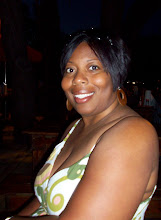I believe it is important to assess the whole child to determine his or her developmental level. One of the qualities I appreciate regarding the Head Start/Early Head Start program is its commitment to assessing the total child. The assessments include hear, vision, speech, developmental domains including social-emotional, cognitive, language and literacy, approaches to learning and gross motor skills. The program also requires dental assessments as well as complete physicals. By requiring these screenings and assessments be completed administrators and teachers can better understand those areas needing assistance and improvement. These assessment and screenings also allow teachers to individualized instruction as well as discuss with parents how learning can be extended from the classroom environment to home.
The use of assessments for instruction and learning has become a great area of interest for me. As preschool education has continued to evolve in the U.S., child advocacy agencies such as the National Association for the Education of Young Children has placed a focus on assessing children’s learning. Because of this growing focus, I have become interested in how children are assessed in eastern world countries such as China.
As I research China, I learned there is not a high focus on preschool learning and children generally began school at age 6 or 7 years of age. According to Joseph LaVoie at the University of Nebraska at Omaha, “The primary use of assessment in China is for screening and placement, but mostly the latter. For the Chinese, the test score is important, because it indicates the child' s level of intellectual functioning or determines the school that the child will attend. Factors other than test scores, such as developmental history or current life circumstances, are not considered in placement or screening decisions in China. However assessments have continued to evolve in China. Now, student assessment has been divided into two parts: the first part was called “assessment of general quality in learning” and focused on assessing students’ development in a) moral performance, b) civil awareness, c) learning aptitude, d) ability in communication and cooperation, e) physical well-being, f) aesthetic literacy. The results of assessment were to be reported by qualitative descriptions and rating grades. The second part focused on the assessment of students’ achievement in: a) knowledge and skills, b) methods and process, c) emotion, attitude and value. China also has focuses on assessing students’ abilities in understanding, analysing and problem solving; Relate closely to students’ daily experience and the society; Use more open-ended items rather than multiple choice and closed items; and adopt open-book tests if possible. A rating scale such as “excellent, good, medium, pass and fail” was recommended to grade students’ achievement instead of the popular percentage marking scale (Lingbia, G., 2007).
Reference:
Lavoie, J. (1990). School based assessment research in the People’s Republic of China. University of Nebraska at Omaha.
Lingbaio, G. (2007). Assessment reform in China: A respond to the international trend in the new century. Retrieved June 10, 2011 from http://xypj.cersp.com/GLB/LUNWEN/200701/3223.html

 In my life support means having the confidence there is someone there to be a confidant, positive critic, and an emotional sounding board. I am daily supported by my husband. He provides me affirmation of love and encouragement. I receive support from my father and stepmother through our morning conversations to discuss the day’s events and saying “I love you” and have a great day. My staff in their consistent professional work in the office supports me. I also receive support from extended family and friends through open conversations and sharing of our life’s events. My sons provide support to me by completing their chores at home. It is so sweet to watch them grow. My greatest support is my spiritual relationship with God. I believe God provides me daily peace and wisdom over the affairs of my life. I am supported by the words in the bible to move through life with a confidence that I am daily protected by God’s love.
In my life support means having the confidence there is someone there to be a confidant, positive critic, and an emotional sounding board. I am daily supported by my husband. He provides me affirmation of love and encouragement. I receive support from my father and stepmother through our morning conversations to discuss the day’s events and saying “I love you” and have a great day. My staff in their consistent professional work in the office supports me. I also receive support from extended family and friends through open conversations and sharing of our life’s events. My sons provide support to me by completing their chores at home. It is so sweet to watch them grow. My greatest support is my spiritual relationship with God. I believe God provides me daily peace and wisdom over the affairs of my life. I am supported by the words in the bible to move through life with a confidence that I am daily protected by God’s love.




